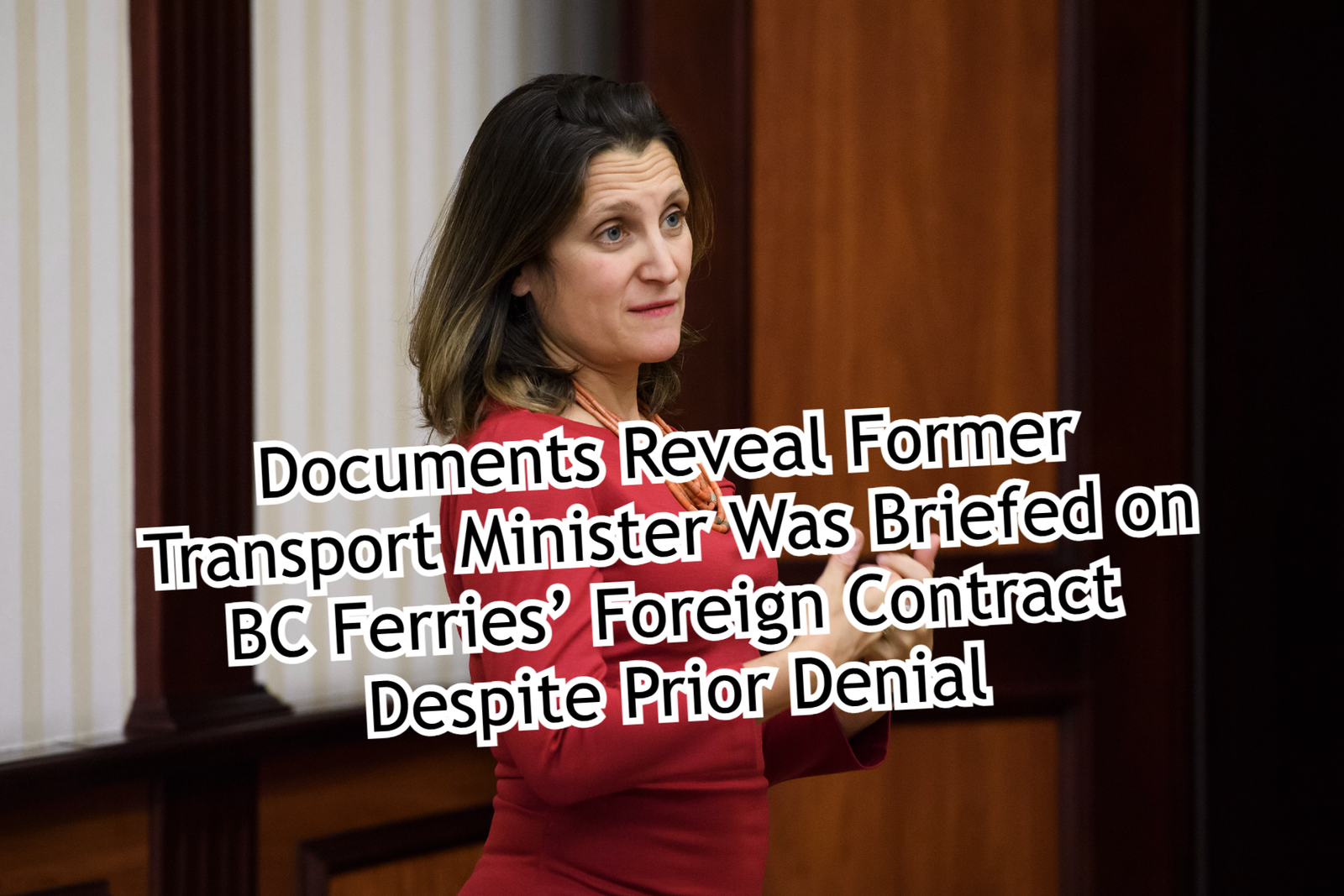Former Transport Minister Chrystia Freeland is expected to reappear before a parliamentary committee following the release of documents that raise fresh concerns about her involvement in BC Ferries’ recent procurement decision.
Emails obtained through access-to-information requests reveal that senior Transport Canada officials were informed in April of BC Ferries’ plan to award a contract to a Chinese state-owned shipyard for the construction of four new vessels. This disclosure appears to contradict Freeland’s earlier claim that she was unaware of the decision until it became public in June.
The Canada Infrastructure Bank had approved a loan of approximately $1.1 billion in March to support the fleet renewal project, though the identity of the selected shipbuilder was not disclosed at the time.
Freeland stepped down as Transport Minister earlier this month to take on a new role as Special Envoy for Ukraine. In response, the House of Commons transport committee passed a motion to recall her for further testimony. Additional witnesses from Transport Canada, BC Ferries, and Canadian shipyards may also be summoned to clarify the timeline and decision-making process.
Critics have raised concerns about the transparency of the procurement, its potential impact on domestic shipbuilding jobs, and whether federal support is being distributed fairly across regions. The federal government has defended the loan as a necessary investment in BC Ferries’ aging fleet, while broader debates over shipbuilding policy and oversight continue.
Key developments:
-
In late April, BC Ferries president Nicolas Jimenez emailed Transport Canada’s Deputy Minister Arun Thangaraj with details about contracting a Chinese shipyard for new vessels.
-
Despite this, Freeland publicly expressed surprise when BC Ferries formally announced its procurement plan in June.
-
The Canada Infrastructure Bank had approved a $1.1 billion loan in late March to fund the four new vessels from Weihai Shipyards (a Chinese state-owned outfit), but did not disclose the shipbuilder at the time.
Political fallout & scrutiny:
-
Freeland resigned from her post as Transport Minister, taking on the role of Special Envoy for Ukraine.
-
After the revelations, MPs passed a motion calling for her to return to testify before the Commons transport committee. Others involved — including officials from Transport Canada, BC Ferries, and Canadian shipyards — may also appear in additional hearings.
-
Conservative MP Dan Albas has sharply criticized the handling of the contract, suggesting that Freeland’s narrative of surprise is undermined by the internal correspondence. He claims this raises serious concerns about protecting Canadian jobs.
-
B.C. Premier David Eby has called attention to what he sees as inconsistency and unfairness in federal support: pointing out that Eastern Canadian ferry operators have received full funding for similar vessels (some from the same shipyard), while BC Ferries is only receiving a subsidized loan.
What’s at issue:
-
The timeline: who knew what and when, and whether officials misled the public about their prior knowledge of the deal.
-
Transparency and oversight: demands for the release of related records (including contracts, briefing notes, and communication between parties) have intensified.
-
The implications for Canadian shipbuilding, federal-provincial relations, and procurement policy especially when foreign, state-owned manufacturers are involved.










